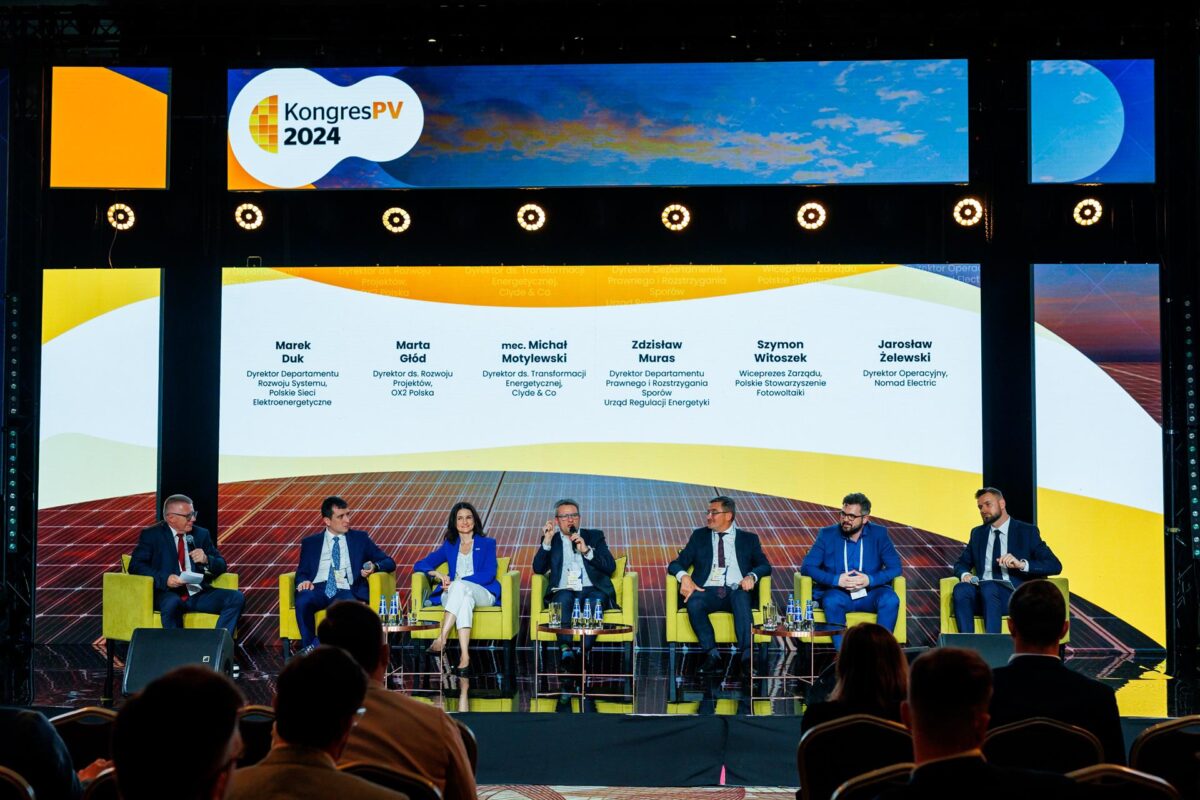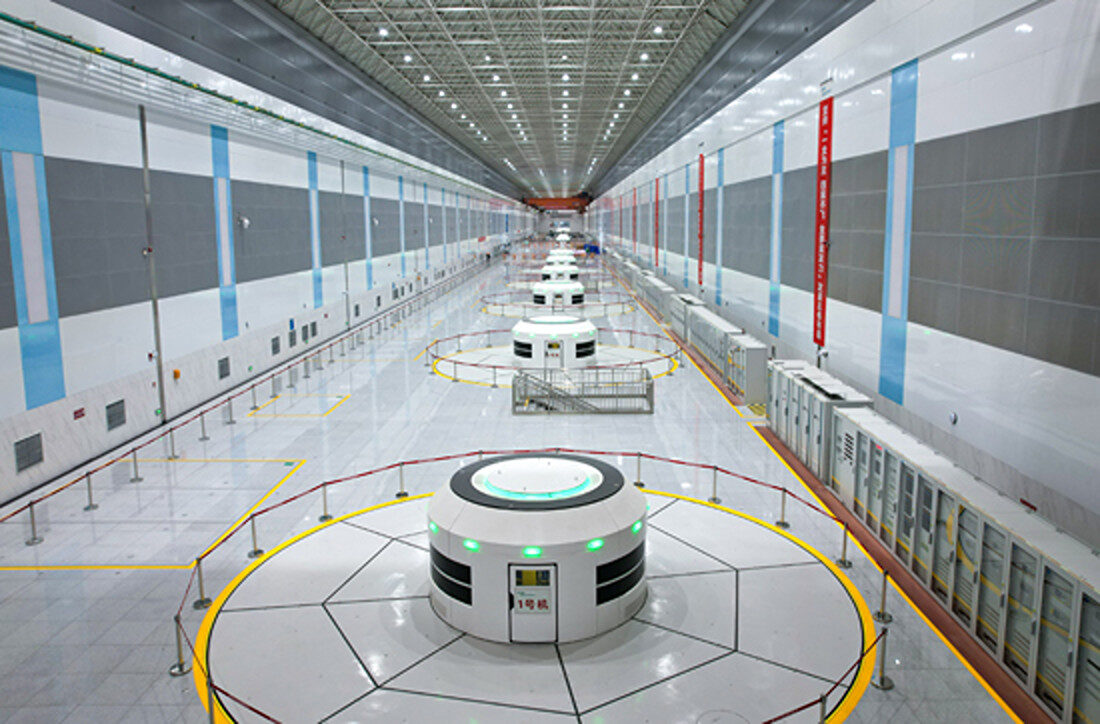The most significant challenges facing Poland’s utility-scale solar sector were under the spotlight on May 27 and May 28 during the 2024 edition of Kongres PV.
Around 50 expert speakers from across the solar industry, academia and government participated in nine panel sessions, sharing their views on issues such as growing curtailment, grid flexibility, deregulation efforts and more.
In the first question of the conference’s opening session, Grzegorz Onichimowski, president of the management board of Polskie Sieci Elektroenergetyczne S.A. (PSE), was asked “will you curtail today?” It was an opener that set the tone for the event. The representative of Poland’s transmission system operator (TSO) took the opportunity to address the broader curtailment issue, acknowledging that Poland’s grid is underdeveloped and in need of better low-voltage infrastructure. “You can’t pour one liter of water into a half liter container,” said Onichimowski. It was a metaphor that speakers referred to throughout the two-day event
Curtailment challenges
Attendees heard that Poland is on course to curtail 1 TWh of electricity in 2024. Utility-scale plant operators will be assigned more than their fair share, it was argued, as residential solar installations are not subject to curtailment. Pawel Konieczny, head of regulatory and development, vice president at R.Power Group, said “there is no equal treatment regarding technologies” and even suggested businesses with multiple plants could be at greater risk of curtailment as it would mean fewer phone calls for the electricity system operator.
Magdalena Porzezynska, partner at Brysiewicz, Bokina i Wspólnicy, and an assistant professor at University of Warsaw, also questioned the legal robustness of Poland’s curtailment regulations, describing a 2023 amendment to the rules governing market and non-market redispatching as “doomed to fail.” Porzezynska argued curtailment rules were covered by EU law and the way they had been transposed into national legislation could result in punitive action from the European Commission. “We should amend regulations as soon as possible or write the law anew,” she said.
Flexible approach
When curtailment was discussed, flexibility was never far away. A panel discussion of the role PV and energy storage could play in developing a more flexible power system saw speakers share views on how the TSO and distribution system operators (DSOs) could facilitate renewables and battery energy storage providing more grid balancing and ancillary services. New grid connection guidance scheduled for release in summer 2024 was highlighted as an important milestone ahead, while the need to move away from Poland’s historically centralized approach to balancing the network was also called for by panelists.
“Let’s go down to the distribution level with flexibility, this is the core of the issue,” said Zdzislaw Muras, a legal expert at Poland’s Energy Regulatory Office.
Creating more flexibility at distribution network level was also called for by Szymon Witoszek, vice president of the board at the Polish Photovoltaics Association. Witoszek argued for the introduction of an aggregator that would allow solar farms and other generators better access to flexibility markets.
Grid connections were on the agenda too, with the DSOs coming under fire for what developers perceive as poor feedback on rejections. Marta Glod, head of development at OX2 Poland said that not only do DSO responses to applications take far longer than the maximum timelines laid out in legislation – they provide insufficient data when they finally do turn up.
“It is a huge problem,” she said. “How can developers plan? It’s improving with some DSOs but I wish we could live to see [DSOs respond] ‘no, we don’t have that capacity but if you add storage that would make things better'.”
Better regulation
One area where Poland has shown progress is around cable pooling, the practice of allowing multiple generators to share a grid connection. New regulations came into force in October 2023 but here, too, industry has concerns. Witoszek told pv magazine the TSO’s bureaucratic process is excessive, asking generators to provide data down to the level of which models of module are used on site. It’s a process ripe for streamlining according to the Polish Photovoltaics Association VP, and he argued a lighter touch on the regulatory front could unlock more renewables potential.
There is also room for regulatory improvement on direct lines, said Karol Lasocki, head of renewables at legal and business service provider DWF Poland. Direct lines allow generation assets to connect directly to offtakers, bypassing the grid. Lasocki argued that the way direct line rules were introduced in Poland has incurred significant cost for investors in the shape of distribution fees, capacity fees, permits and registration fees. “We should rethink how our law is developed in relation to direct line,” he said, adding “when someone chooses a direct line, a service beyond the power system, they should not incur such significant costs.”
Mariusz Filipek, plenipotentiary for deregulation and economic dialogue at the Ministry of Development and Technology, said it was the government’s mission to deregulate and simplify regulations. In April, the ministry published a draft law for an initial package of deregulation measures, but a second batch is in the pipeline, according to Filipek. The government representative said he would like the second deregulation package to tackle energy clusters, a type of energy community in the Polish market. National regulations for energy clusters were adopted in 2016 but have been criticized for their complexity. When significant elements of an energy cluster are controlled by municipalities, public procurement law may be applied. It's a situation which Filipek said must be rectified. “Public procurement law should not be applied to energy clusters,” he said.
Approximately 1,000 guests attended the 2024 edition of Kongres PV, according to event organizers.
This content is protected by copyright and may not be reused. If you want to cooperate with us and would like to reuse some of our content, please contact: editors@pv-magazine.com.



By submitting this form you agree to pv magazine using your data for the purposes of publishing your comment.
Your personal data will only be disclosed or otherwise transmitted to third parties for the purposes of spam filtering or if this is necessary for technical maintenance of the website. Any other transfer to third parties will not take place unless this is justified on the basis of applicable data protection regulations or if pv magazine is legally obliged to do so.
You may revoke this consent at any time with effect for the future, in which case your personal data will be deleted immediately. Otherwise, your data will be deleted if pv magazine has processed your request or the purpose of data storage is fulfilled.
Further information on data privacy can be found in our Data Protection Policy.